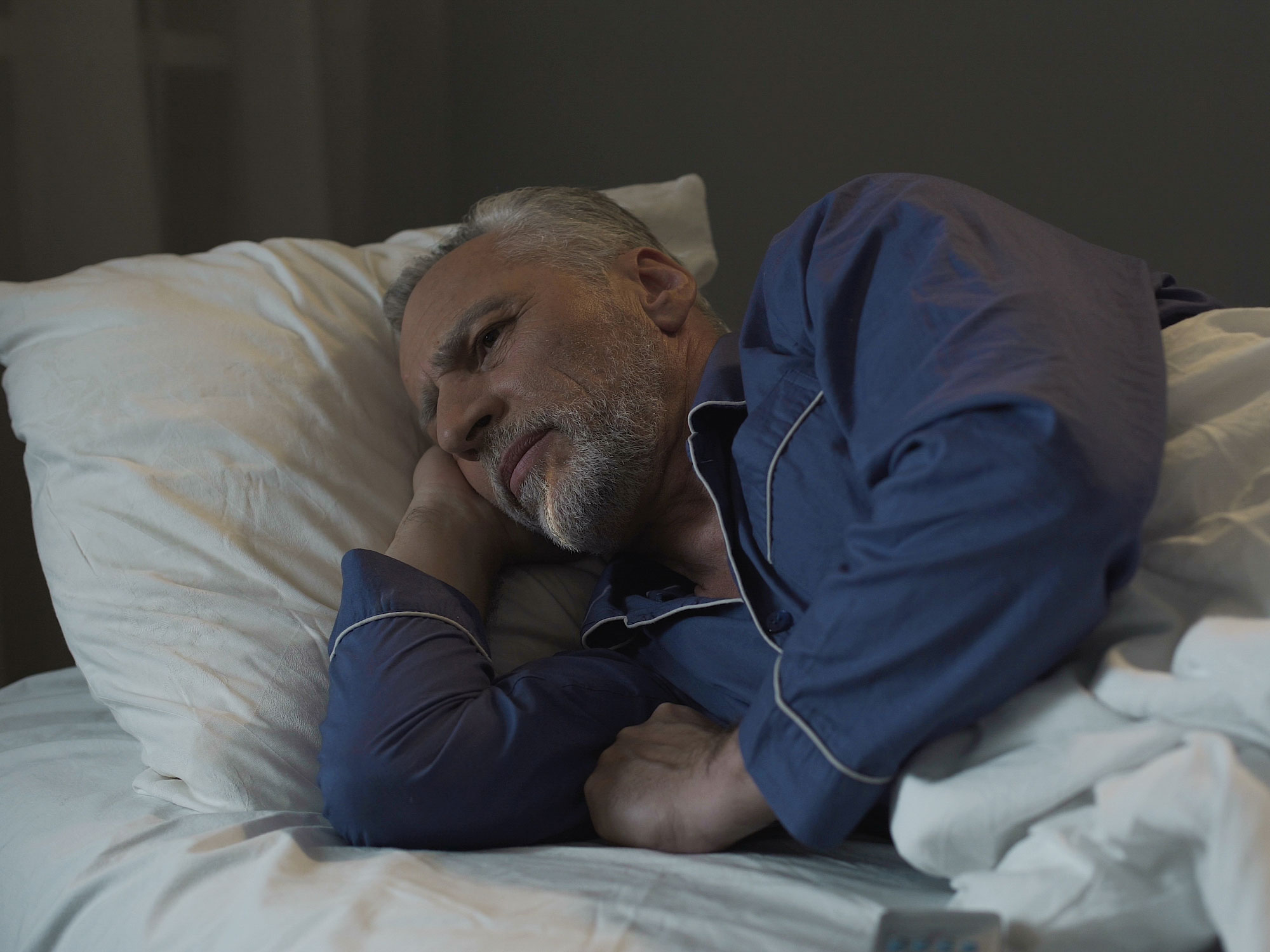Get Easy Health Digest™ in your inbox and don’t miss a thing when you subscribe today. Plus, get the free bonus report, Mother Nature’s Tips, Tricks and Remedies for Cholesterol, Blood Pressure & Blood Sugar as my way of saying welcome to the community!
Why sleep’s elusive in your 60s and how to get it back

I recently had a week-long bout of insomnia. I don’t really know what caused it, and fortunately, it ran its course. But it was not pleasant.
This may not sound like a big deal, not compared to other health problems I could be having.
But let me tell you, not being able to sleep, and knowing it will probably be the same tomorrow night, and the night after that…. well, it can make you feel not only physically ill but off your mental game too.
At 63, I’m in that age range where falling asleep and staying asleep tends to get harder by the year.
But, contrary to what many people think, insomnia is not a normal part of aging that we just need to accept.
True, some things happen with age that make sleep difficulties more likely. But you don’t have to take them … well, lying down.
How sleep changes as you get older
Beginning around age 60, several things occur naturally that conspire to make us less satisfied with the amount and quality of the sleep we get.
For one, there are biological changes that alter your sleep patterns and your circadian rhythm, that built-in time clock we all have that regulates our sleeping and waking.
A shift called a circadian phase advance happens naturally as we get older. It can cause you to become tired earlier in the evening, and to wake up early.
This has happened to me. Instead of going to bed at 10 or 11, I find that I’m yawning and ready to crawl between the sheets by 9:00, or sometimes even 8 pm. On the other end, I’m awake when the birds start singing at 3:30 or 4 am.
This doesn’t have to be a problem, except that it can make you need a nap in the afternoon in order to keep going. I find that this has become a regular practice for me, which I had attributed to something more problematic, like work avoidance, or even depression.
Now, I know better.
Deep sleep, known as REM sleep, the time when dreaming occurs, is also reduced as we age.
And there’s something called sleep efficiency. Essentially, this is the proportion of in-bed time that’s spent actually sleeping.
Adam P. Spira, a sleep researcher at Johns Hopkins Bloomberg School of Public Health, tells us that once we reach age 60, sleep efficiency gets, well, less and less efficient.
We may find ourselves, as I do, asleep for a few hours, then staring at the ceiling, wide awake at 2 a.m.
But when these normal changes begin to affect the quality of our days, then other interventions are needed.
What to do about insomnia
As I mentioned earlier, chronic insomnia can damage your mental health. And for seniors, in particular, it is linked to a laundry list of diseases, including cancer, diabetes, hypertension, depression and heart attack.
But don’t get fooled into relying on prescription sleeping pills, or even over-the-counter sleep aids, to solve the problem. For seniors, they carry risks that can lead to falls and injuries, as well as cognitive problems.
Related: Over 65? Think twice about sleeping pills
So, what can you do about insomnia?
Research tells us that the first thing you should do is to set a regular time for getting into bed and for waking up, and stick to it, no matter what. This can help your “body clock” re-set itself to some extent.
Also, a walk during the day, and one in the early evening, can help. Exposure to natural light at these times can also help set that clock, and make you sleepier at bedtime.
Here are some other things to try, including vitamins, diet, and controlling the light in your sleeping quarters.
Also, consider supplementing with melatonin. It’s a hormone you produce less of as you age and it’s been researched for its effects on sleep, aging and disease prevention.
If the problem persists, you may want to try a different sort of intervention.
Dr. Ariel Green, a geriatric health specialist at Johns Hopkins School of Medicine, says that cognitive-behavioral therapy has been as effective as medication for people willing to work with a therapist.
Editor’s note: Are you feeling unusually tired? You may think this is normal aging, but the problem could be your master hormone. When it’s not working, your risk of age-related diseases skyrockets. To reset what many call “the trigger for all disease” and live better, longer, click here to discover The Insulin Factor: How to Repair Your Body’s Master Controller and Conquer Chronic Disease!
Sources:
- Insomnia Can Kill You — The New York Times
- Optimizing Sleep in Older Adults: Treating Insomnia — Maturitas
- Cognitive behavioural interventions for sleep problems in adults aged 60+ — Cochrane Database of Systematic Reviews (CDSR)
- Aging and Sleep — National Sleep Foundation
- How Age Affects Your Circadian Rhythm — National Sleep Foundation













